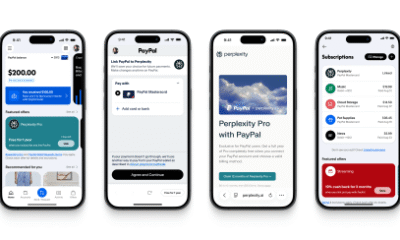Business
AI business managers 'optimistic still' after Project Vend – RNZ

Business
Trump asks US Supreme Court to uphold his tariffs after lower court defeat

President Donald Trump has asked the US Supreme Court to overturn a lower court decision that found many of his sweeping tariffs were illegal.
In a petition filed late on Wednesday, the administration asked the justices to quickly intervene to rule that the president has the power to impose such import taxes on foreign nations.
A divided US Court of Appeals for the Federal Circuit last week ruled 7-4 that the tariffs Trump brought in through an emergency economic powers act did not fall within the president’s mandate and that setting levies was “a core Congressional power”.
The case could upend Trump’s economic and foreign policy agenda and force the US to refund billions in tariffs.
Trump had justified the tariffs under the International Emergency Economic Powers Act (IEEPA), which gives the president the power to act against “unusual and extraordinary” threats.
In April, Trump declared an economic emergency, arguing that a trade imbalance had undermined domestic manufacturing and was harmful to national security.
While the appellate court ruled against the president, it postponed its decision from taking effect, allowing the Trump administration time to file an appeal.
In Wednesday’s night’s filing, Solicitor General John Sauer wrote that the lower court’s “erroneous decision has disrupted highly impactful, sensitive, ongoing diplomatic trade negotiations, and cast a pall of legal uncertainty over the President’s efforts to protect our country by preventing an unprecedented economic and foreign policy crisis”.
If the Supreme Court justices deny the review, the ruling could take effect on 14 October.
In May, the New York-based Court of International Trade declared the tariffs were unlawful. That decision was also put on hold during the appeal process.
The rulings came in response to lawsuits filed by small businesses and a coalition of US states opposing the tariffs.
In April, Trump signed executive orders imposing a baseline 10% tariff as well as “reciprocal” tariffs intended to correct trade imbalances on more than 90 countries.
In addition to those tariffs, the appellate court ruling also strikes down levies on Canada, Mexico and China, which Trump argues are necessary to stop the importation of drugs.
The decision does not apply to some other US duties, like those imposed on steel and aluminium, which were brought in under a different presidential authority.
Business
Hermes Testing expands probe solution business amid AI-driven semiconductor demand

Hermes Testing, a testing solutions provider under Hermes Epitek, is leveraging its machine engineering services and customized equipment manufacturing to address growing demand in advanced semiconductor testing driven by AI industry growth. The company…
Business
Google told to pay $425m in privacy lawsuit

A US federal court has told Google to pay $425m (£316.3m) for breaching users’ privacy by collecting data from millions of users even after they had turned off a tracking feature in their Google accounts.
The verdict comes after a group of users brought the case claiming Google accessed users’ mobile devices to collect, save and use their data, in violation of privacy assurances in its Web & App Activity setting.
They had been seeking more than $31bn in damages.
“This decision misunderstands how our products work, and we will appeal it. Our privacy tools give people control over their data, and when they turn off personalisation, we honour that choice,” a Google spokesperson told the BBC.
The jury in the case found the internet search giant liable to two of three claims of privacy violations but said the firm had not acted with malice.
The class action lawsuit, covering about 98 million Google users and 174 million devices, was filed in July 2020.
Google says that when users turn off Web & App Activity in their account, businesses using Google Analytics may still collect data about their use of sites and apps but that this information does not identify individual users and respects their privacy choices.
Separately this week, shares in Google’s parent company Alphabet jumped by more than 9% on Wednesday after a US federal judge ruled that it would not have to sell its Chrome web browser but must share information with competitors.
The remedies decided by District Judge Amit Mehta emerged after a years-long court battle over Google’s dominance in online search.
The case centred on Google’s position as the default search engine on a range of its own products such as Android and Chrome as well as others made by the likes of Apple.
The US Department of Justice had demanded that Google sell Chrome – Tuesday’s decision means the tech giant can keep it but it will be barred from having exclusive contracts and must share search data with rivals.
-

 Business6 days ago
Business6 days agoThe Guardian view on Trump and the Fed: independence is no substitute for accountability | Editorial
-
Tools & Platforms3 weeks ago
Building Trust in Military AI Starts with Opening the Black Box – War on the Rocks
-

 Ethics & Policy1 month ago
Ethics & Policy1 month agoSDAIA Supports Saudi Arabia’s Leadership in Shaping Global AI Ethics, Policy, and Research – وكالة الأنباء السعودية
-

 Events & Conferences4 months ago
Events & Conferences4 months agoJourney to 1000 models: Scaling Instagram’s recommendation system
-

 Jobs & Careers2 months ago
Jobs & Careers2 months agoMumbai-based Perplexity Alternative Has 60k+ Users Without Funding
-

 Education2 months ago
Education2 months agoVEX Robotics launches AI-powered classroom robotics system
-

 Funding & Business2 months ago
Funding & Business2 months agoKayak and Expedia race to build AI travel agents that turn social posts into itineraries
-

 Podcasts & Talks2 months ago
Podcasts & Talks2 months agoHappy 4th of July! 🎆 Made with Veo 3 in Gemini
-

 Podcasts & Talks2 months ago
Podcasts & Talks2 months agoOpenAI 🤝 @teamganassi
-

 Education2 months ago
Education2 months agoAERDF highlights the latest PreK-12 discoveries and inventions





















